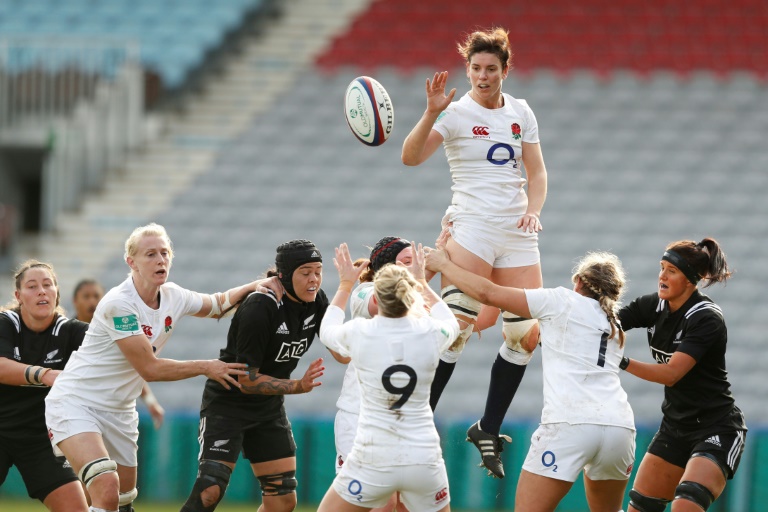
Sensitive mouthguards for British and New Zealand women
The England and New Zealand rugby teams announced on Friday that the women’s rugby teams of England and New Zealand are wearing mouthguards designed to measure the impact of impact in their upcoming matches.
Specially designed mouthguards will collect data when players hit others or the ground. They will also record effects that do not directly involve the head.
England and New Zealand will wear these mouthguards, which are made by US company Prevent Biometrics, during the two meetings they will be holding Sunday in Exeter and November 7 in Northampton, as well as during training sessions.
This innovation is emerging as concerns grow about the link between rugby and long-term brain damage.
World Rugby announced earlier this year that it was participating in a study on the effect of playing rugby on the brain that involved more than 700 amateur players in New Zealand using these mouthguards.
Men’s teams from Leinster (Ireland), Clermont (France) and Benetton (Italy) also employ them.
“Making rugby safer for every player at all levels of play is extremely important, and we are delighted to help make that happen,” said England captain Sarah Hunter.
Simon Kemp, director of medical services for English rugby union (RFL), said the findings “will be an important contribution to advancing the understanding of head injury exposure in rugby”.
A group of former rugby players including British internationals, who are showing symptoms of neurological damage, will file a complaint against the FA for negligence, believing they have not been protected from the consequences of a concussion.
Among them, Bobby Golding, 49, learned in October that he had early dementia and possibly chronic traumatic encephalopathy (CTE), a degenerative disease diagnosed mainly in athletes who have experienced regular head trauma.
The lawsuit comes in the wake of others, brought by some players including 2003 World Cup winner Steve Thompson, who said he does not remember the world title.

“Organizer. Social media geek. General communicator. Bacon scholar. Proud pop culture trailblazer.”
